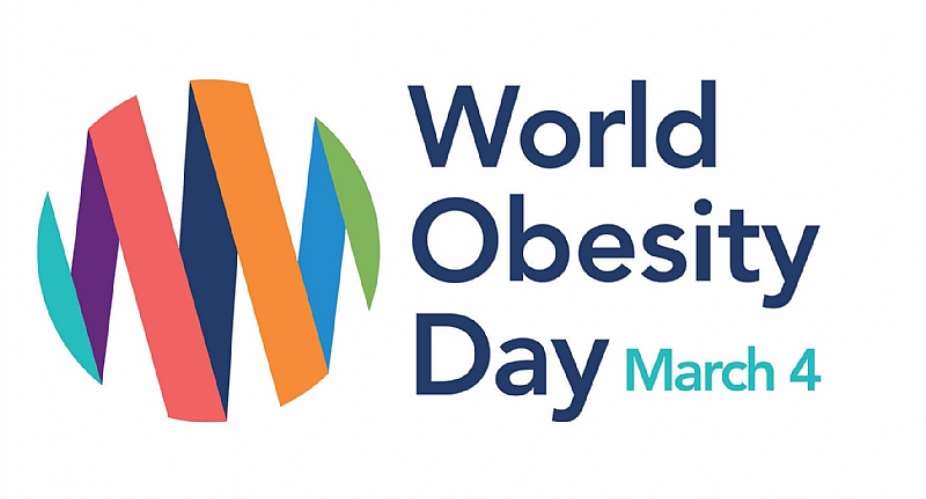As we echo the voices of advocates across the world in changing perspectives about obesity for a healthier tomorrow, civil society actors led by the Ghana NCD Alliance and Vision for Alternative Development, (VALD-Ghana) reaffirms the government’s intention to tax unhealthy commodities such as tobacco, alcohol and sugar-sweetened beverages (SSBs). On this occasion of World Obesity Day 2023, we urge the Parliament of Ghana to pass the bill on excise taxes as a fulfillment of its responsibility to protect every Ghanaian from excessive exposure to SSBs which has been established as a key predictor of obesity and other non-communicable diseases (NCDs).
This year, World Obesity Day is celebrated under the theme: Changing Perspectives: Let’s Talk about Obesity. The theme is timely and thoughtful, given the many misconceptions surrounding the causes of obesity and the reflex response of shifting the blame on the victim’s choices and willpower while policymakers ignore how our unhealthy food environment increases the prevalence, especially among children and young people
The World Health Organization (WHO) defines obesity as excessive fat accumulation that presents a health risk; a body mass index (BMI) over 25 is considered overweight, while a BMI over 30 is obese. As of 2017, the global death rates associated with obesity stood at 4 million per year. Sadly, the rates keep increasing largely due to the indifference of countries to take up responsibility and act (WHO, 2022). In 2015, a joint survey by the Ghana Statistical Service, Ghana Health Service and ICF International found Ghana’s obesity rate at 15.3% while overweight stood at 24.8%. Today, 7 out of 10 Ghanaian adults and 4.5 out of 11 children are obese (Global Obesity Observatory 2023).
The resulting impact is enormous; obesity leads to comorbidities with other non-communicable diseases such as cancer, mental illness, hypertension, bone diseases and cardiovascular disease. Economically, Lartey et. al 2020, found that the average healthcare cost per admission for adults of healthy weight is $35, whereas for adults with overweight, it is $78, and for adults with obesity, $132. The study further estimated that 60% of the average total costs per person expended is borne by the National Health Insurance Scheme (NHIS).
This means that the government is paying huge sums of money for the treatment and care of obesity and its related diseases, with little or no efforts aimed at preventing these diseases. The commemoration of this year’s World Obesity Day is timely as Ghana’s Parliament is considering the passage of the Excise Tax Bill, which when passed, will go a long way to reduce the availability and affordability of sugar-sweetened beverages thereby reducing consumption.
We, therefore, recommend the following:
- Government must develop policies to regulate what is sold in and around all basic and secondary schools in Ghana
- Develop policies on sugar-sweetened beverages to regulate the sale, marketing and advertisement on television, radio and social media
- Ban SSBs-sponsored events in schools
- Governments and school owners must revive the physical activity periods popularly called PE in the school curriculum to keep our children active
As the next generation of adults, parents, workers and decision-makers, we say, young Ghanaians are being let down by systemic factors like aggressive food marketing that makes it difficult to lead healthy lives. Obesity is a very complex condition and solving it is not as simple as telling people to be more active and eat better. This year, we are changing the perspective; we will no longer blame individuals and claim the problem is simply a lack of willpower and a matter of choice.
The government must take full responsibility for regulating Ghana’s food environments and protecting the right to life of its young people; pass the SSBs tax now!
Labram Musah
National Coordinator -Ghana NCD Alliance
Executive Director of Programs- VALD-Ghana
[email protected]
0243211854





 Former Kotoko Player George Asare elected SRC President at PUG Law Faculty
Former Kotoko Player George Asare elected SRC President at PUG Law Faculty
 2024 elections: Consider ‘dumsor’ when casting your votes; NPP deserves less — P...
2024 elections: Consider ‘dumsor’ when casting your votes; NPP deserves less — P...
 You have no grounds to call Mahama incompetent; you’ve failed — Prof. Marfo blas...
You have no grounds to call Mahama incompetent; you’ve failed — Prof. Marfo blas...
 2024 elections: NPP creates better policies for people like us; we’ll vote for B...
2024 elections: NPP creates better policies for people like us; we’ll vote for B...
 Don’t exchange your life for wealth; a sparkle of fire can be your end — Gender ...
Don’t exchange your life for wealth; a sparkle of fire can be your end — Gender ...
 Ghana’s newly installed Poland train reportedly involved in accident while on a ...
Ghana’s newly installed Poland train reportedly involved in accident while on a ...
 Chieftaincy disputes: Government imposes 4pm to 7am curfew on Sampa township
Chieftaincy disputes: Government imposes 4pm to 7am curfew on Sampa township
 Franklin Cudjoe fumes at unaccountable wasteful executive living large at the ex...
Franklin Cudjoe fumes at unaccountable wasteful executive living large at the ex...
 I'll 'stoop too low' for votes; I'm never moved by your propaganda — Oquaye Jnr ...
I'll 'stoop too low' for votes; I'm never moved by your propaganda — Oquaye Jnr ...
 Kumasi Thermal Plant commissioning: I pray God opens the eyes of leaders who don...
Kumasi Thermal Plant commissioning: I pray God opens the eyes of leaders who don...
